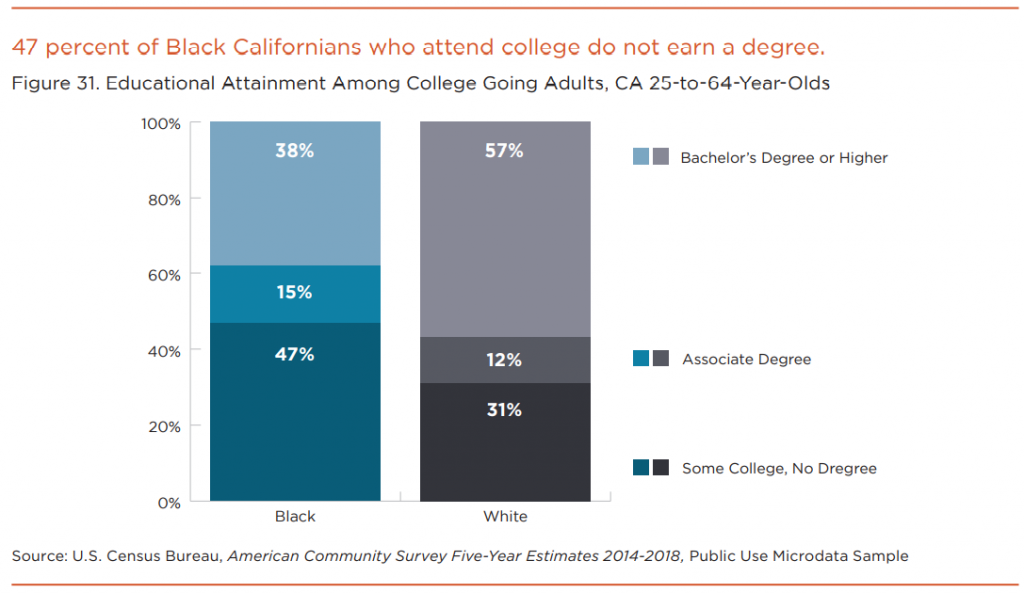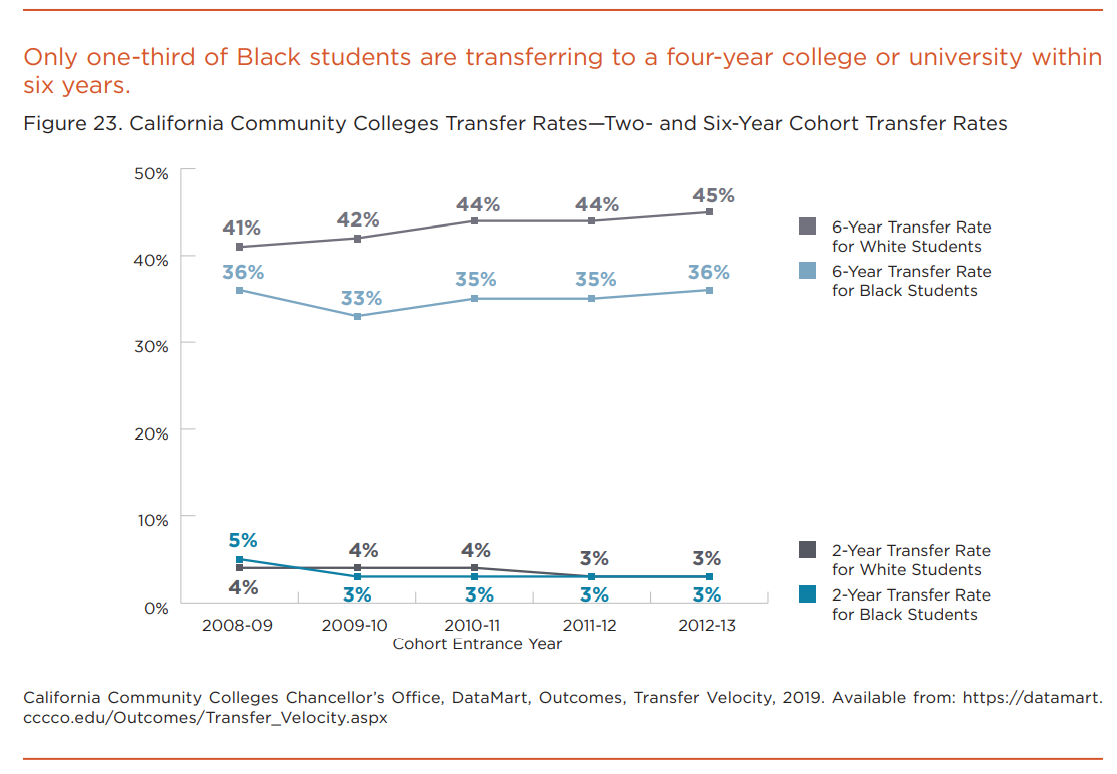The Campaign for College Opportunity recently released a new research report on the social and economic reality faced by Black Californians. As noted by in the forward by Dr. J. Luke Wood,
“[Postsecondary] Institutions must foster concrete change that better enable our colleges and universities to provide a dignified experience to our Black students. While this has always been important, its criticality has been exposed by today’s dual pandemics—the pandemic of COVID-19 that has disproportionately impacted Black communities and the pandemic of anti-Blackness that has a unique strain of undervaluing and criminalizing Black lives and minds.”
This report examines measures related to college access for California’s Black high school students and the rates at which Black students, once enrolled in college, are supported in meeting their educational goals. Included are recommendations for California’s policymakers and education leaders to ensure that equity is at the heart of their work and to create a system of higher education in which Black students matter.
Report highlights*:
By the time California’s students arrive at the threshold of college, their inequitable experiences translate into significant disparities in the rates of college readiness and attendance by race/ethnicity.
- As the largest higher education system in the state, the California Community Colleges serve the majority of undergraduate students across all racial and ethnic groups. In the 2018–2019 academic year, of the Black students enrolling in postsecondary education, 64 percent of Black undergraduates attended a community college; 6% enrolled in a University of California institution; 14% enrolled at a California State University institution.
- In 2017, California legislators replaced no-credit remedial classes with college-level instruction at community colleges. This report suggests that that policy change has increased the number of Black community college students taking classes eligible for transfer to the University of California: “specifically, 48% of Black community college students “in 2019 completed transfer-level English, compared with 15% four years earlier.” At the same time, 27% of Black students “completed transfer-level math, up from 7% in 2015.”
- Graduation rates for Black transfer students at California State University and University of California institutions have increased, but they are still lower than that of their white peers.
- 36 percent of Black transfer students graduate from CSUs in two years and 71 percent in four years
- 50 percent of Black transfer students graduate from the UCs in two years and over 80 percent in four years.

Select Report Recommendations for the state of California:
- Commit to the state’s goal of ensuring that 60 percent of Black Californians in the workforce hold a degree or high-value credential by 2030;
- Strengthen transfer and ensure equitable access to the Associate Degree for Transfer for Black community college students;
- Develop a state-wide longitudinal data system so that policymakers and institution leaders and staff and ensure Black students are succeeding.
*Source: Reddy, Vikash and Michele Siqueiros. The State of Higher Education for Black Californians. Los Angeles, CA: The Campaign for College Opportunity, February 2021.
Click here to read the full article.
